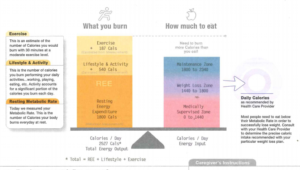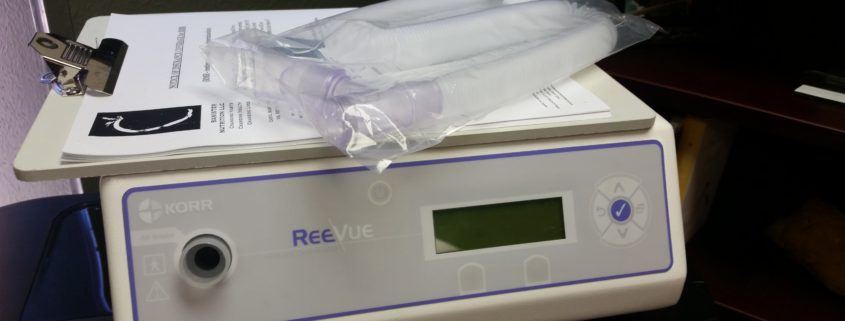RMR – What We Can Learn About Your Metabolism
Do you think your metabolism is so-o-o-o slow or maybe almost dead which explains why you can never lose weight or why you gain weight just looking at food? If you feel this is true for you let us check out your metabolic rate and find out for sure if your oven is still cooking or if it’s truly burned out. We can measure your resting metabolic rate with a very simple 10-12 minute breathing test in our office. The test measures the oxygen your body consumes and uses this information to calculate your Resting Energy Expenditure (REE) or Resting Metabolic Rate (RMR).
We will provide you with a printout, which tells you if your metabolism is dead or alive (helpful information for all of us to know), and how many calories your body burns on a daily bases. The dietitians at Banister nutrition perform this test on the majority of all new patients to determine your accurate calorie burn. Reliable energy information is the foundation to calculate all calorie and nutrient requirements for any diagnosis.
is dead or alive (helpful information for all of us to know), and how many calories your body burns on a daily bases. The dietitians at Banister nutrition perform this test on the majority of all new patients to determine your accurate calorie burn. Reliable energy information is the foundation to calculate all calorie and nutrient requirements for any diagnosis.
Your metabolic rate may be affected by:
- muscle: muscle mass increases RMR
- age: RMR slows with age
- genetics: your own genetics may contribute to a raised or lowered RMR
- weather: your RMR increases in cold weather
- meals: small regular meals increases RMR
- pregnancy: may increase RMR
- crash-dieting: decreases RMR (Read our blog on The Biggest Loser study for more interesting information on this!)
- supplements: some can raise your RMR
The RMR test requires you be in a fasting state, no caffeine and only water for 4 hours prior to the test. Digesting food at the time of the test will raise your RMR as will consuming caffeine. In order to solve a problem we must first accurately identify the problem. You don’t want to be blaming a supposedly “slow metabolism” for you weight or health issues if that is not actually the real problem. -HM



